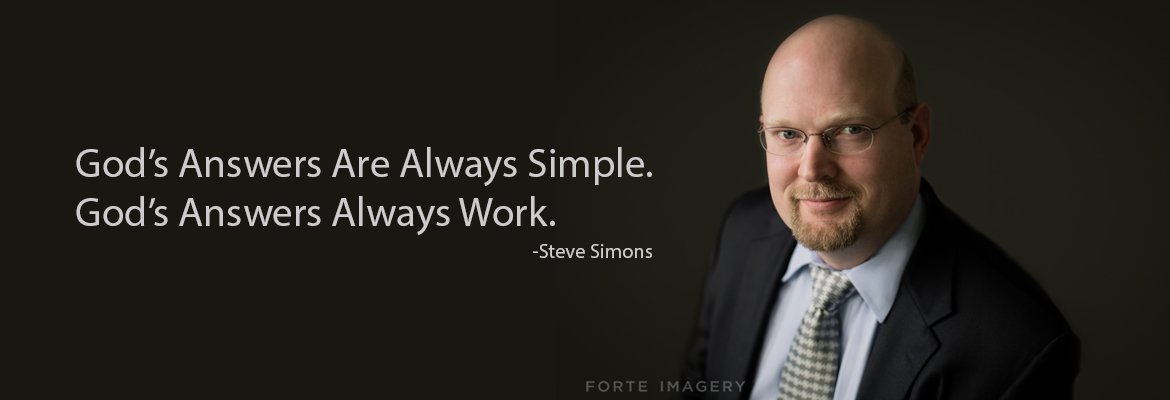 Christ’s plan for his church was simply that all churches should be local. Not papal. Not episcopal. Not congregational. Not denominational. Simple local groups of believers following Him and supporting each other.
Christ’s plan for his church was simply that all churches should be local. Not papal. Not episcopal. Not congregational. Not denominational. Simple local groups of believers following Him and supporting each other.
Led by a preacher who is called by God and leads with a clear vision of God’s will and a firm grasp of God’s Word, the local church lives and dies in the natural order of creation according to the health and well being of the people it serves, unites, and empowers. And unlike normal human institutions which are established to preserve their own longevity, local churches should strive to live in the present without dwelling in the past or fretting about the future and without aspiring to or pursing control of other local churches. One practical outcome of this is that local churches should function as cash economies. And this is a serious challenge to church of today. Christ is suggesting that we should not be pursuing large endowments and persistent capital giving campaigns, but instead churches can thrive on the cash flow they receive in donations like the manna from heaven that God gave to Israel in the wilderness, which is like honey on the day it is given, but becomes worm-ridden and disgusting if it is stored for future use. And as God blesses a group with enough and more than enough, just as they have received, they should freely give to support new ministries, accomplish missions, and build the kingdom in any way God shows them is possible — no strings of control or expectation of repayment attached. Consider trusting God enough to empower someone else to answer His calling on their life without making that person accountable to you. Imagine a church generous enough to build another church that was completely independent. Supported, but not controlled.
Is this structure really possible? If you step back and look at the Christian movement as a whole, beyond the context of a local community, its soul and identity is not found in books of doctrine, or in codes and creeds, councils or orthodoxies. Christianity hasn’t been unified by our human traditions, interpretations, or institutions. The soul of the church which creates it, unites it, and directs it is, and always has been, Jesus Christ. He requires no vicar or mediator here on earth, because He is Himself immediately present and active throughout all of creation, with every person, and in every situation. Consider this, even the Bible itself, apart from Jesus Christ, is dead. It is an inescapable fact that Christ is what makes the church a church, the believer a believer, and every person, truly human. And so, His church as a gathering of believers is not to be structured as an organization or an institution, but as an organism — the living, breathing, reaching, working, teaching, healing, effective and powerful body of Christ — which is heaven and is the presence of heaven on earth. For the soul, body, and structure of heaven is Jesus Christ Himself and to be Christian is to aspire to be like Christ and so to each pursue our unique callings and ministries as members in His body with integrity so that His will can be accomplished on earth as it is in heaven.
Consider what it means when we say that we are members in the body of Christ. No matter at what level you look at it, the human body which was created in the image and likeness of God, is not a command and control system, it is a system of influence and balance. Although at times the control of a surgeon’s scalpel or chemical manipulation by means of prescription drugs may be necessary to remove a malignant revolt or intervene to drive back an invader, at the end of the day the balance and mutual support of the various body systems and their differing influences is what determines the ultimate outcome and health before, during, and following any intervention. The healthy body does not require a back brace, or a continual flow of drugs, or visits to the emergency room to maintain and establish its well being. Neither does the body of Christ require man made traditions, dogmas, institutions, or hierarchies to establish or preserve its life.
Jesus structured a very simple church — send a preacher to call together followers who wish to hear the good news and live it. If the people hear the good news from the preacher and support their mission, then the preacher is to stay with them. If not, the preacher is to move on to a place where the people will hear, accept, and support them. There are countless professions in the life of a healthy church — doctors, lawyers, architects, engineers, farmers, musicians, counselors, preachers, and more, but if the church is Christian, all of its believers are priests because they have unmediated and personally responsible relationships with God and are invested with all of the rights and responsibilities that this entails. The entire population of the kingdom of heaven, and so the church, is its priesthood because every believer who loves Jesus and shares His love with others is a priest, and although there are professional preachers in the midst of every church, being a priest is simply a way of life resulting from each believer’s closely held relationship with their God. And the church? The church is simply a collection of believers, unified in Jesus Christ to accomplish His mission, fulfill His purposes, and share His message as members in His body, walking this world to bring the kingdom of heaven here on earth.









Share a Reply